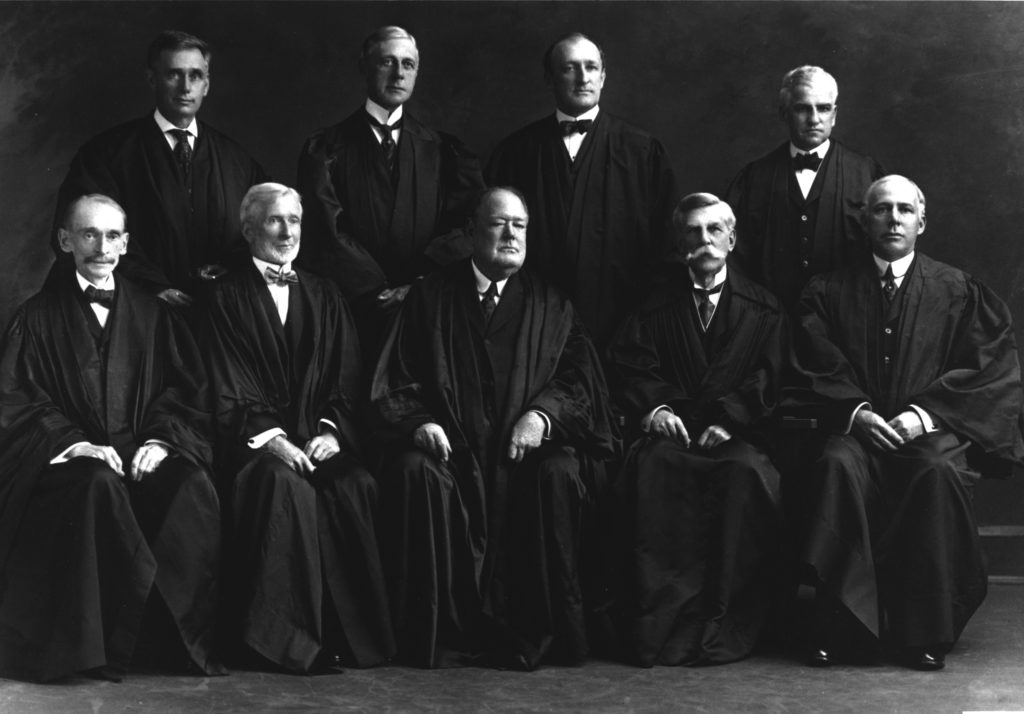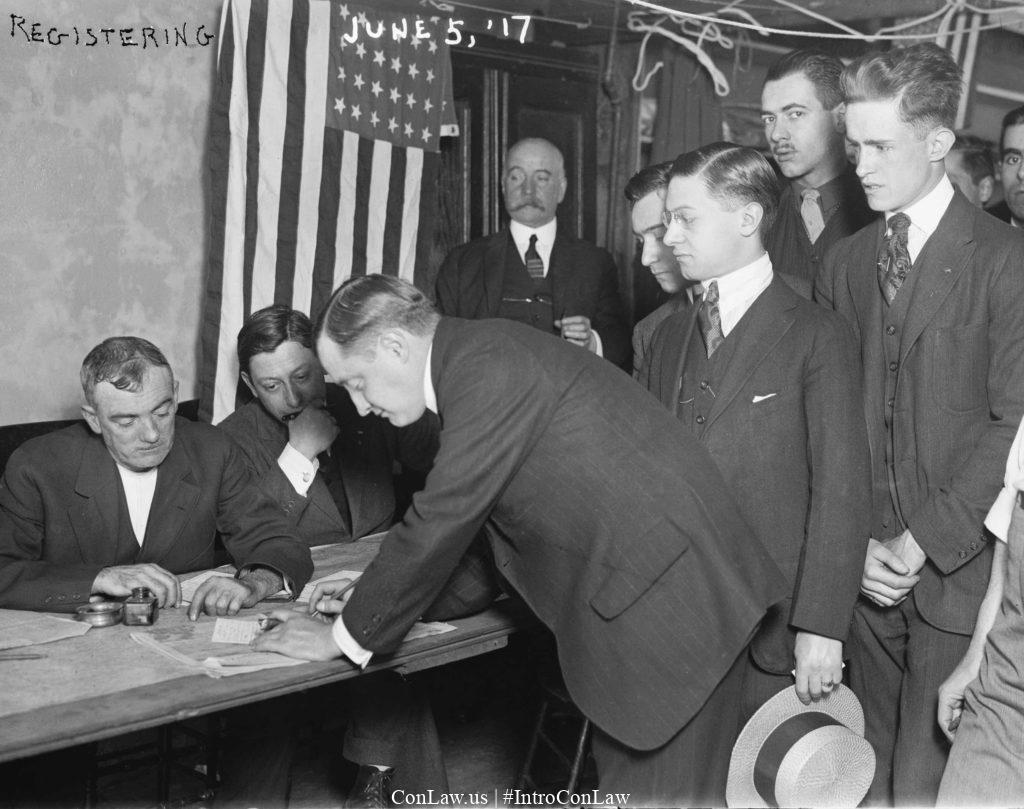
Uncle Sam Recruiting Poster: I Want You For U.S. Army.

President Wilson’s inauguration

The White Court (1916-1921). Seated, from left to right: Justices William R. Day, Joseph McKenna, and Chief Justice Edward D. White, and Justices Oliver Wendell Holmes, Jr. and Willis Van Devanter. Standing, from left to right: Louis D. Brandeis, Mahlon Pitney, James C. McReynolds, and John H. Clarke.

Men registering for the military

Schenck's flyer: "Long Live the Constitution of the United States. Wake Up America! Your Liberties are in Danger!" Published by the "Socialist Party Book Store and Headquarters"

Schenck's flyer: "Assert your rights!"
![The Wilson Administration charged Schenck under the Espionage Act with “obstruct[ing] the recruitment and enlistment service of the United States, when the United States was at war with the German Empire.”](https://conlaw.us/wp-content/uploads/2019/08/1919-schenck-v-us-Espionage-1024x576.png?v=1568568291)
The Wilson Administration charged Schenck under the Espionage Act with “obstruct[ing] the recruitment and enlistment service of the United States, when the United States was at war with the German Empire.”

“The question in every case is whether the words used are used in such circumstances and are of such a nature as to create a clear and present danger that they will bring about the substantive evils that Congress has a right to prevent.”

“The most stringent protection of free speech would not protect a man in falsely shouting fire in a theatre and causing a panic.”

“When a nation is at war many things that might be said in time of peace are such a hindrance to its effort that their utterance will not be endured so long as men fight and that no Court could regard them as protected by any constitutional right.”

Bad Tendency Test
Bad Tendency Test. The government could ban speech if “the natural and probable tendency and effect of a publication are such as are calculated to produce the result condemned by the statute.”
During World War I, Charles Schenck circulated literature that urged people to resist the military draft. He wrote that the draft amounted to a form of slavery, in violation of the Thirteenth Amendment. The Wilson Administration charged Schenck under the Espionage Act with “obstruct[ing] the recruitment and enlistment service of the United States, when the United States was at war with the German Empire.” Schenck argued that the prosecution violated the Free Speech Clause of the First Amendment.
The Supreme Court upheld the conviction unanimously. Justice Holmes wrote the majority opinion.